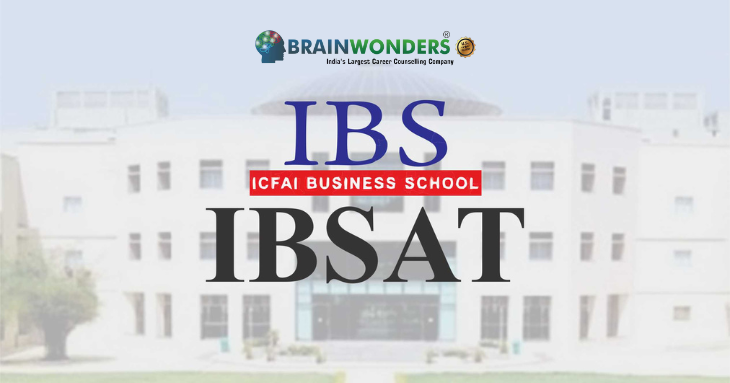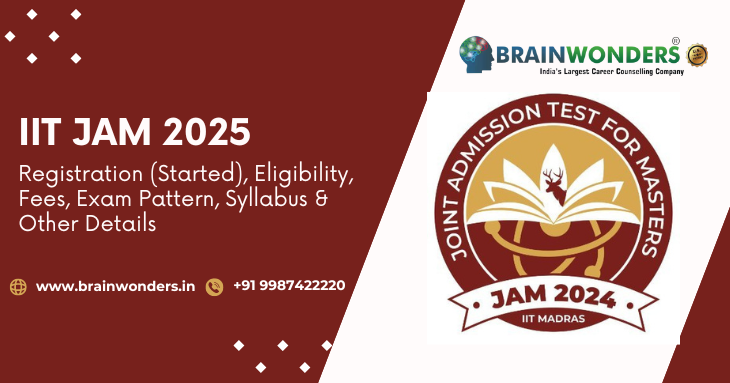

Take Brainwonders Career Test and make the right decisions for your college and course ahead
Let your unique personality, strengths, and traits guide to make the best decdision of your life!
Blog
22 May,2023 | By Brainwonders

Selecting the right career after BCom is essential for succeeding in Commerce. Students interested in the commerce field must not rely solely on B.Com Course. They should strive for their postgraduate degree and learn more in-depth in their field of interest. Some popular degrees they should go for are M.Com, MBA, CA, CSS, etc.
Many students prefer to go for a B.Com Degree as it provides a wide range of career opportunities. Once students have completed their B.Com degree, they can go for Accountancy jobs, Company Secretaries, Bank-PO exams, etc., or they can even go for options such as financial risk management, investment banking, etc. Additionally, if students are interested in teaching, they can go for a Bachelor of Education.
The field of Commerce is huge as it includes topics such as Finance, Taxation, Insurance, Auditing, Management, etc. Before students choose their course, students should know where their interest must lie.
Completing a Bachelor's Degree in Commerce opens up many doors of opportunity. By weighing the pros and cons of your options, you can make an informed decision for your future career. This article will provide a comprehensive guide on some of the most sought-after professional paths that follow a BCom degree. After reading, you should have a better understanding as to which career to choose after BCom.
After obtaining a BCom degree, individuals can seek out countless career opportunities in the Banking, Accounting and Finance sectors. As finance is one of the four pillars of any business organization, qualified professionals in this field are in high demand. Those with a BCom can look forward to a variety of potential roles within these industries, as well as other related ones. Given below are the sectors that one can get into after completing their B.Com
| Careers | Average Salary |
| Accountant | ₹20,000-106,000 |
| Financial Analyst | ₹40,000-60,000 |
| Auditor | ₹27,000-40,000 |
| Investment Banker | ₹15,000-50,000 |
| Business Analyst | ₹30,000-60,000 |
| Banker | ₹30,000-40,000 |
Completing a Bachelor of Commerce (BCom) degree is no longer enough to ensure a successful career launch. In order to gain an edge, candidates must invest in higher studies and build expertise in their field of choice. There are a wide range of academic and professional courses available which can help individuals hone their skills and advance their knowledge base. The following is an overview of some of the most popular courses for BCom students:
The Master of Commerce (M.Com) programme is a postgraduate degree aimed at giving students who have already completed their Bachelor of Commerce degree more skills and in-depth information. This postgraduate programme lasts two years and is ideal for those who want to hone their abilities even further and get insight into how to use their academic knowledge in the real world correctly.
The topics covered in this postgraduate course include banking, finance, taxation, business management, and other related issues. Those interested in pursuing careers in tax, accounting, or BFSI (banking, financial services, and insurance) are good candidates for the Master of Commerce degree.
Students who complete this postgraduate programme will be prepared for careers such as accountant, accountant executive, finance manager, and similar positions. Accenture, TATA Consultancy Service Ltd., Infosys BPO, and other similar companies are among the most prestigious employers seeking M.Com graduates.
The idea of becoming a certified public accountant crosses the mind of every student enrolled in the Bachelor of Commerce programme. After completing a Bachelor of Commerce degree, one of the most prestigious possibilities is to become a certified public accountant. To become a Chartered Accountant (CA), one must first achieve success in all three levels required to become a Chartered Accountant and then complete an internship that lasts for at least two and a half years.
The duration of the course is three years. Those who complete this course will be qualified candidates for employment opportunities with businesses such as Deloitte. The ICICI Bank, McKinsey & Company, Inc., KPMG Consulting, and other similar businesses are also among the most prominent recruiters of Chartered Accountants.
Individuals eager to improve their employment prospects and earn higher salaries should strongly consider enrolling in this programme, which lasts 2.5 years. CFA is a designation that is acknowledged all around the world and is made available through the CFA Institute.
This class covers various topics, including investment analysis, economics, statistics, portfolio management, and other related issues. Candidates must pass all three levels of testing to earn their CFA designation. CFAs are in high demand by major financial institutions such as J.P. Morgan, BlackRock, Morgan Stanley, and others.
After completing your Bachelor of Commerce degree, you may also want to consider studying Business Accounting and Taxation. Students will be better prepared for their future careers in accounting and taxation after taking this course. Students will be provided with the necessary skills and information for the industry thanks to industry professionals' careful design of this curriculum.
The course covers various issues, including direct taxation, payroll components ESIC, payroll components, and goods and services tax (GST), among others. After finishing this programme, a person has a far better chance of landing a career in the relevant industry as a tax consultant, corporate legal assistant, company law assistant, or one of the many other desirable positions available. Accenture, eClerx, and HDFC Bank are leading employers that recruit.
Those who are interested in obtaining a degree that is recognised in the fields of banking and finance can consider majoring in Financial Risk Management. This condensed, nine-month course demonstrates your potential and understanding of several risk management concepts. One must complete the Financial Risk Management programme offered by GARP to be eligible for the position of Financial Risk Manager.
Finding and analysing potential dangers and keeping tabs on how well they are doing in the market are both part of a Financial Risk Manager's role and responsibilities. A Financial Risk Manager may find employment in many fields, including marketing, sales, private banking, or trading.
What could be more valuable than an MBA for someone with a natural aptitude for business? A Master of Business Administration (MBA) is a postgraduate degree that typically takes students two years to complete and provides them with the appropriate skills and an in-depth understanding of their chosen area of specialisation.
Students need to acquire a passing score on the CAT, an aptitude test determining which college a candidate will attend. Only then are they eligible to enrol in an MBA programme.
An MBA graduate can work in large companies such as TATA Consultancy, Infosys, and Accenture in various managerial roles, including Marketing Manager, Operations Manager, and many more.
Customer service can be a good fit for you if you enjoy managing things. A Company Secretary plays a vital role in any business and is accountable for a wide range of responsibilities, including the administration of the company's legal affairs and the upkeep of its financial records.
A degree in corporate law is required to be considered a viable candidate for the post of CS in any given firm. This course takes three years to complete and is divided into three parts: foundation, intermediate, and finals.
There are several job openings available in the public sector at various levels, beginning with the possibility of working as an officer in a government bank or for a private company in the finance, accounting, or management department of a commerce-related industry. If a candidate is serious about advancing their career in the public sector, earning a Bachelor of Commerce degree from a UGC-DEB-accredited institution and meeting the requirements of this position is the best way to do it.
The public sector banking industry offers a wide variety of potential options. Let's look at the job paths available in the government sector of the financial industry. Where applicants can submit their applications to take several government-based banking exams:
Other government examinations for which someone with a Bachelor of Commerce degree is eligible to apply. to perform duties related to the domestic, state, or central employment levels. The following are some of the other most essential opportunities that someone with a Bachelor of Commerce degree should look into:
| SSC CGL | SSC IDM | Railway Ticket Checker Examination | RRB JE |
| SSC CPO | SSC FCI | Assistant Loco Pilot Examination (RRB ALP) | RRB NTPC |
| SSC JE | RRB | RRB Paramedical Examination | RPF SI, so forth |
An applicant must have earned a Bachelor of Commerce degree or another degree related to the post from an accredited university to be considered for a position in a government agency. The candidate's overall undergraduate grade point average must be at or above 55 per cent.
If you have always wanted to work for a well-known multinational corporation or a large company, you should take this certificate course after completing your B.Com degree. It is the best course to provide a certificate in managing financial accounting, strategic management, or handling the accounts of an individual, organisation of a government or private sector. If you have always wanted to work in these types of companies, then you should take this course. Studying for the Certified Management Accountant credential includes financial planning, budgeting, forecasting, decisions on financial reporting, cost management, company finances, risk management, investment banking, professional law, ethics, and more.
Studying for this course ranges from six to eight months, depending on which university institute you attend. Suppose you have this Certified Management Accountant (CMA) qualification. In that case, you can provide yourself access to various professional prospects in finance and management, whether those changes be in the public, private, or non-governmental sector. This CMA training is in high demand all the time.
One of the challenging courses one may pursue after finishing a programme leading to a Bachelor of Commerce degree or another programme in a comparable field is the Chartered Institute of Business course. This certificate programme is intended to evaluate the professionals working in the banking and investment industries in all aspects of banking, finance, and other monetary sectors.
The topics covered in the CIB course are those that are considered to be the most important in their respective fields, such as banking, finance, investment banking, financial analysis, banking and corporate actions, restructurings, listing, fundraising, initial public offerings (IPO), acquisitions, transactions, LBOs, and so on. The minimum amount of time required to complete the course is six months, and the maximum amount of time is one year. The length of time needed to complete the course is determined by the colleges and institutions that are used to teach students about banking and their specific industries.
A candidate who has completed the CIB certificate course is eligible to pursue a career in investment banking, equities research, private equity, hedge funds, private wealth management, asset management, corporate finance, strategy, and even government departments.
In recent times, digital marketing has increased the level of digital platforms such as e-commerce, products, goods, and services, or even the digital media platforms themselves so that businesses can promote their products more effectively. If you are interested in working in a creative industry, becoming a digital marketer is the most excellent and most viable career choice for you to consider at this time.
After obtaining a Bachelor of Commerce degree, you will be able to start your venture or business or continue working for the family business by assisting them in working in commerce-based policies and services and in taking your company to the top in a strategic, managing, way of the finances and accounting. Alternatively, you can choose to continue working for the family business. In today's increasingly digital environment, this course will teach you the importance and benefits of moving your business operations onto the internet platform.
In digital marketing, there is the potential to work for both multinational corporations and domestic companies. The time it takes to complete a digital marketing course might range from three months to one year, depending on the educational establishment (college or university) from which you intend to graduate.
In the study of digital marketing, topics such as SEO, SMM, SEM, PPC, Email Marketing, Web Designing, Content Marketing, and other related issues are covered in depth. This digital marketing course is one of the most essential and in-demand courses not only for students pursuing a B.Com degree but also for students in practically every other sector who want to begin their careers in a way that is unique to them and their creativity.
You have the option to pursue a Bachelor of Education degree after completing your bachelor's degree in business administration (B.Com). Candidates interested in becoming teachers or lecturers will find that this is their ideal line of work. The Bachelor of Education (B.Ed.) degree is a teaching programme that lasts for two years and is specifically designed to prepare students for careers in academic fields.
Suppose you have an aggregate grade point average of 55 per cent or more in your bachelor of commerce degree or another speciality. You might consider working in the field of education. After finishing your Bachelor of Education degree, you can submit applications to teach in various schools, institutes, colleges, and universities, depending on the B.Ed specialities you choose.
The specific focus of the studies in a Bachelor of Education degree programme is on pedagogy, education and child psychology, education policy, leadership, instructional technology, special education, lesson planning, curriculum development, and other related topics. Those who wish to instruct or mould the perspectives of younger generations should consider making a profession out of teaching because it is the most stable and prosperous field.
After completing a Bachelor of Commerce (BCom), individuals can take advantage of the diverse array of career options after BCom. While furthering one's education with a Master of Commerce (MCom) or Bachelor of Education (BEd) is an option, they may also opt to immediately start working in a junior accounting role, as a finance executive, or as a sales consultant. Additionally, professionals may select professional qualifications such as a MBA, CA, CS, CFA, CMA, CFP, FRM, and more to specialize in the area of finance and investments. Here are some popular career options after BCom in India:
| B.Com Jobs | Average Salary (INR) per annum |
| Jr Accountant | 2 lakhs |
| Accountant | 3 lakhs |
| Account Executive | 2.7 lakhs |
| Business Executive | 2.5 lakhs |
| Financial Analyst | 5 lakhs |
| Tax Consultant | 5 lakhs |
| Financial Consultant | 6 lakhs |
| Accounts Manager | 5.5 lakhs |
| Business Consultant | 9 lakhs |
| Finance Manager | 9 lakhs |
| Financial Analyst | 5 lakhs |
| Chartered Accountant | 7 lakhs |
| Company Secretary | 6.2 lakhs |
| Chartered Financial Analyst | 6.7 lakhs |
| Certified Management Accountant | 14 lakhs |
| Financial Risk Manager | 9 lakhs |
| Certified Financial Planner | 4 lakhs |
| Bank Manager | 8 lakhs |
Many students go for entrance exams after completing their B.Com. Some of the competitive exams are listed below
Pursuing higher education in the relevant discipline is the initial step toward your career. You can get the training you need to do what you want at some of the best educational institutions in the world.
So, tell us, what exactly are you anticipating?
Get in touch with our team of knowledgeable Educational counselors at Brainwonders to learn more about pursuing a career after B.Com and schedule a no-cost consultation appointment immediately. To learn more about Careers, read our site, The Careers Hub.
Q1. What are the career options after a BCom?
Ans After completing a Bachelor of Commerce degree, you can pursue various career paths. Popular job roles for BCom graduates include:
Q2. What qualifications do I need to pursue a career in finance or banking?
Ans To work in finance or banking, you must have at least a bachelor's degree in finance, accounting, or a related field. Additionally, you should also be familiar with financial regulations and products, as well as have strong analytical and problem-solving skills.
Q.3 What is the average salary one can expect after completing a BCom degree?
Ans The average salary for a B.Com graduate can range from 2.5 LPA INR to 3 LPA INR.
Q.4 Can I go for the competitive exam after BCom?
Ans Yes, individuals can definitely prepare themselves for competitive examinations after completing their BCom. It is a widely chosen course of action among the youth in India. Popular competitive exams that are available include RBI Grade B Officer, SBI PO and Clerk, IBPS Clerk and PO, and LIC AAO.
Q.5 What are the minimum eligibility criteria to pursue B.Com?
Ans To be eligible to pursue a BCom degree, applicants must have successfully completed their 12th grade with a preferred focus in Commerce. Many universities both at the Central and state level offer BCom curriculums, although admission criteria may differ. Some institutions allow for direct entry based on 12th class scores while others require students to take a common entrance exam.
Q.6 What are the top colleges after BCom In India?
Ans The top colleges after BCom in India are as follows:-
Q.7 How much Salary do Finance Managers get paid?
Ans The finance managers can earn up to 13 LPA INR. The salary increases further with relevant experience in the field of banking.
Take Brainwonders Career Test and make the right decisions for your college and course ahead



,_Syllabus,_Pattern,_Old_Question_Papers.png)

